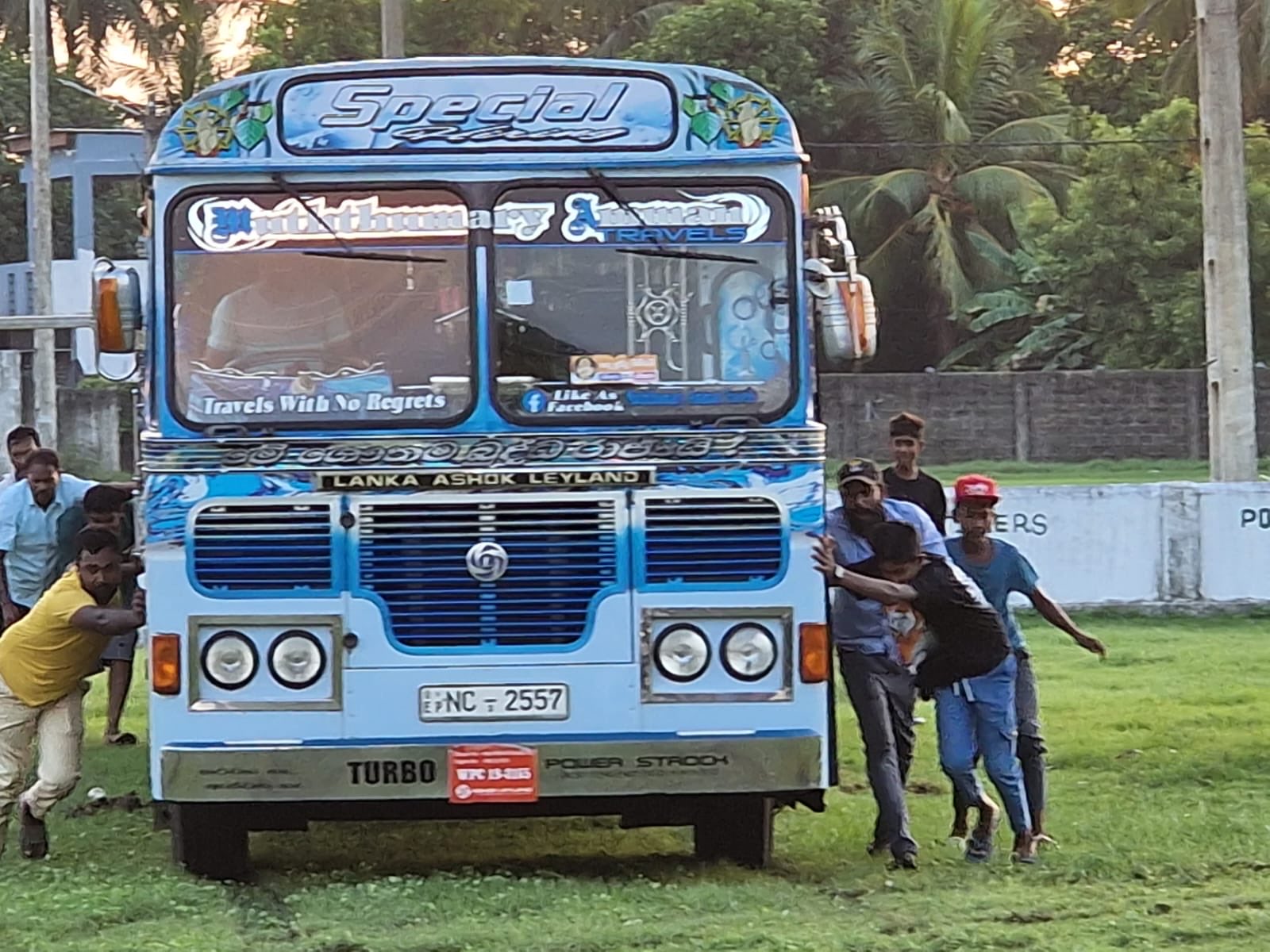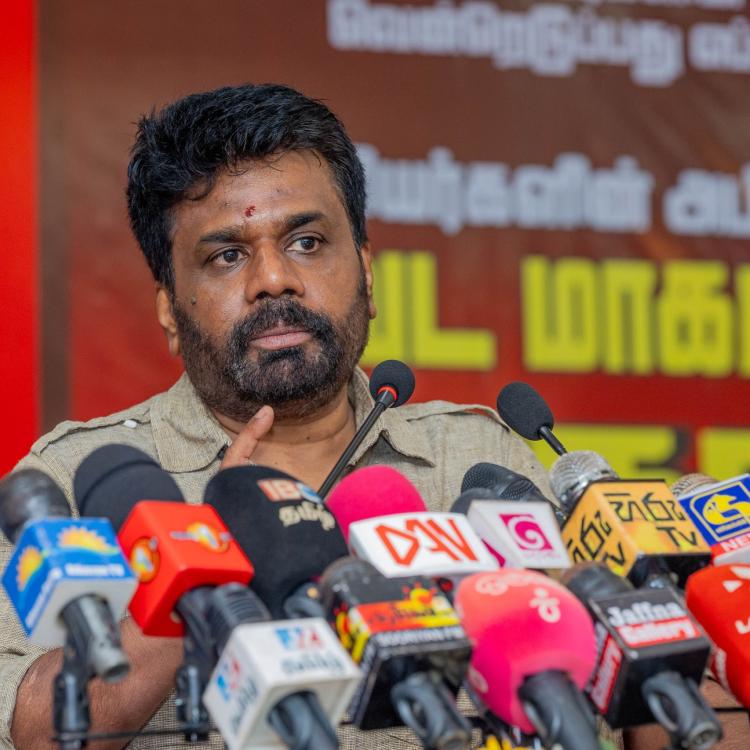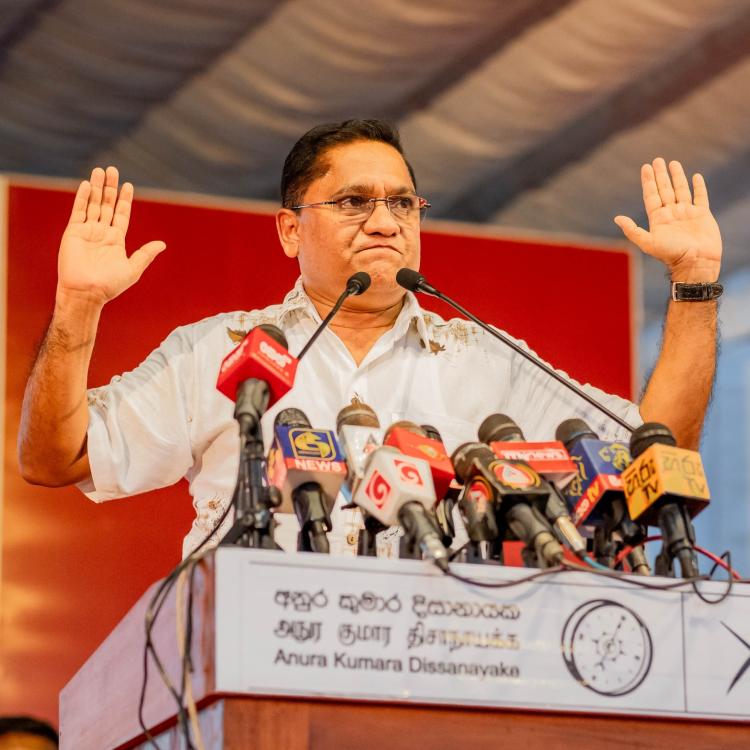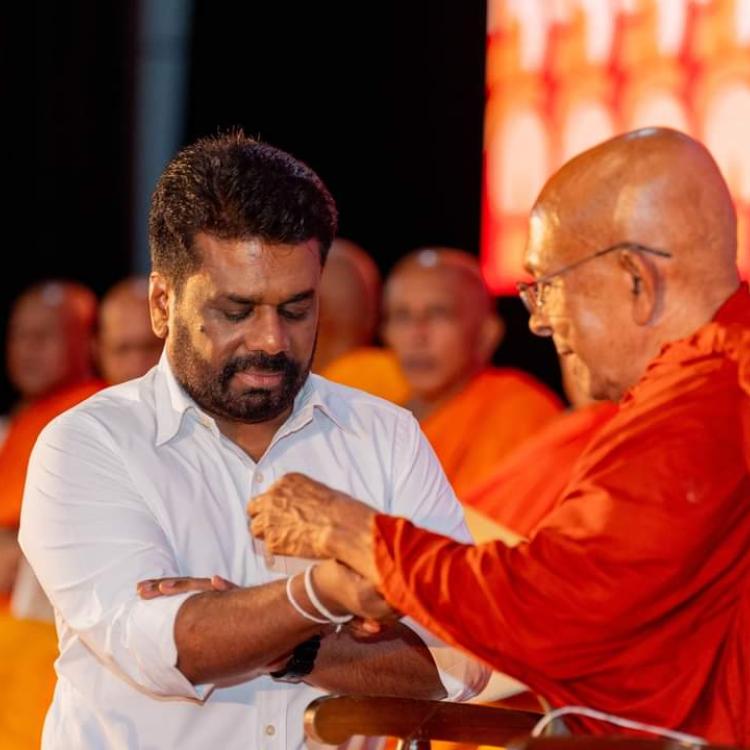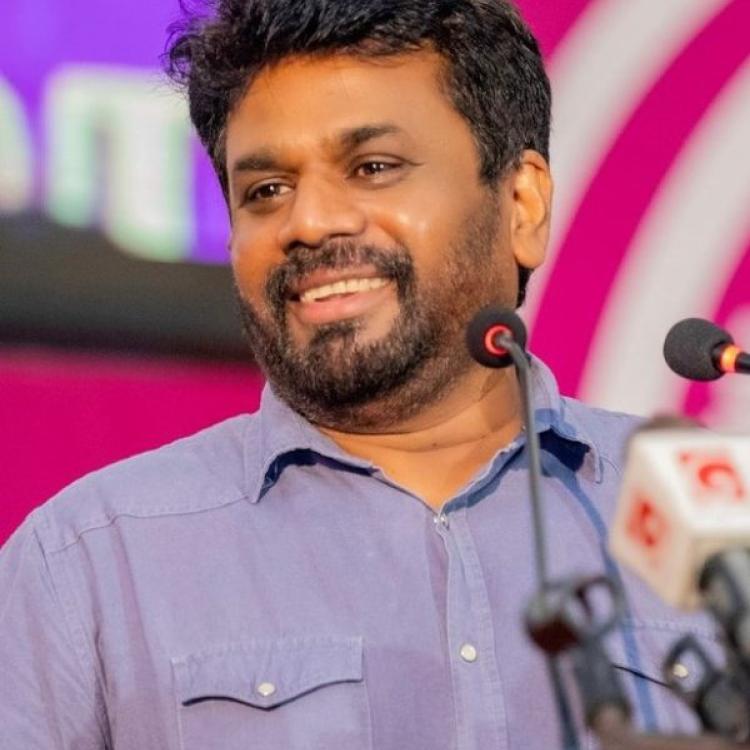Sri Lanka’s president Anura Kumara Dissanayake allegedly transported bus loads of Sinhalese supporters to Jaffna yesterday, as he spoke of “uniting all Sri Lankans under one flag” to crowds at a rally in the North-East.
A photograph of Sinhala supporters in a bus from outside of Jaffna, as Sri Lanka's president came to the Tamil North-East this weekend.
Sri Lanka’s president Anura Kumara Dissanayake allegedly transported bus loads of Sinhalese supporters to Jaffna yesterday, as he spoke of “uniting all Sri Lankans under one flag” to crowds at a rally in the North-East.
His appearance in Jaffna and Vavuniya, the first public rallies in the Tamil homeland since his election as Sri Lankan president, came just days ahead of the November 14 parliamentary polls. During his address, in Sinhala but translated to Tamil, Dissanayake pledge to release Tamil land occupied by the state – but also attempted to minimise the decades of oppressions faced by the Tamil people.
"When we give lands in the North, the South shouts, and when we give lands in the South, the North shouts," he said in Vavuniya, claiming that Tamils were opposed to land being granted to Sinhala people in the South. He said nothing else to back up his claim.
To this day, the military continues to occupy vast swathes of land across the Tamil North-East, despite more than 15 years since the Mullivaikkal genocide. In recent years, Sri Lanka’s archaeology and forest departments have forcibly taken over more land in Tamil Eelam, claiming they are Sinhala Buddhist heritage sites. Regardless Dissanayake stated, "we have committed to return all lands belonging to the people in the North, regardless of the reasons for its previous acquisition".
Dissanayake went on to say that his party is “committed to uniting all Sri Lankans under one flag, allowing everyone to practice their culture, language, and religion freely”.
For decades, Tamils have rejected the Sri Lankan flag, choosing, for example, to wave black flags on Sri Lanka’s Independence Day instead as a mark of protest. His words also seemed to contradict past statements given by the current Sri Lankan prime minister Harini Amarasuriya, who was appointed by Dissanayake earlier this year. In 2020, she wrote,
“Most calls for ‘unity’, a ‘Sri Lankan identity’, also reflect the majority preoccupation of ‘taming’ the minorities and bringing them under the benevolent control of the majority community. Many Sinhalese who would consider themselves cosmopolitan, democratic and tolerant, would not see the implicit exclusions and violence, in enforcing a totalising identity in a society such as Sri Lanka. COVID-19 and its impact on the Muslim community show the extent to which a majoritarian mindset that is comfortable with demonising minority communities – or any other community that is seen as a threat to the majority community – has become normalised in Sri Lankan society and polity.”
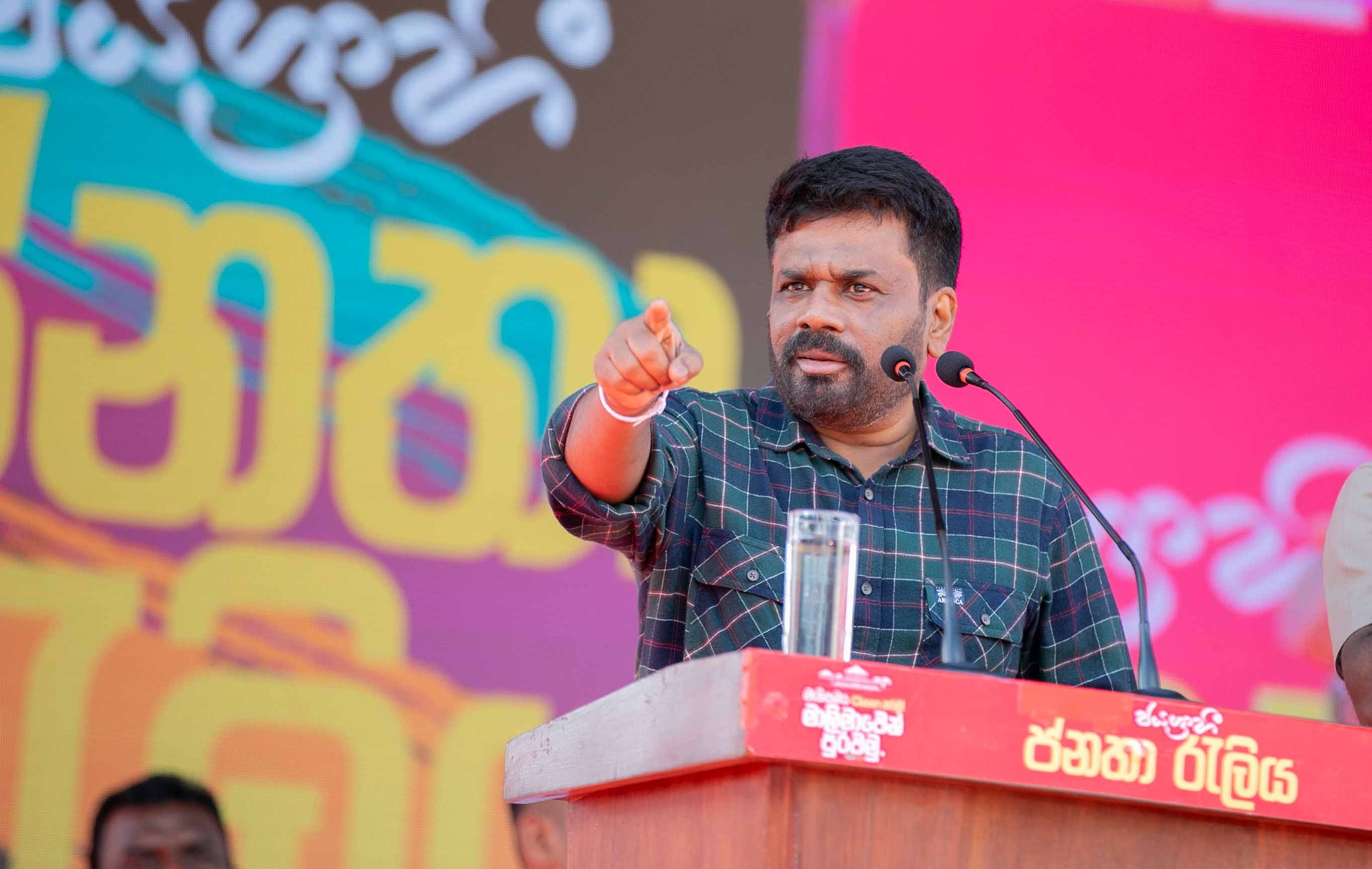
In his speech, Dissanayake also announced his intention to end the prolonged detention of Tamil political prisoners, stating, "according to the advice of the Attorney General, we will move forward with the release of these prisoners."
"The fisheries of the North are being plundered by other countries, which harms our local economy," he also said. "We will implement measures to protect the fishing communities in the North-East and uphold their rights."
Dissanayake also hinted that his party has not completely rebuked their previous anti-Indian sentiment, when he spoke of the strategic importance of solar energy. “Sunlight is a precious asset for us,” he said, speaking on an agreement struck earlier in the year with India to build solar power plants in Jaffna's Delft, Nainathivu, and Alanathivu islets. “We will not sell our solar power for nothing and will revisit all related agreements to benefit the country.”
His government has pledged to reassess all previous agreements made with India, which was rapidly expanding its presence on the island. After coming into office however, that language became more muted and the government ahs repeatedly pushed back a decision on cancelling another Indian power project in Mannar.
After speaking in Vavuniya, Dissanayake went on to Jaffna where he repeated many of the same points he had raised earlier in the day. Though he pledged to hold elections for the now-defunct provincial councils, he did not address demands of devolving power to the Tamil regions or wider calls for self-determination.
Former parliamentarian M A Sumanthiran tweeted about Dissanayake’s rally this morning, stating “for some strange reason [President Dissanayake] brought a few thousand people in buses last evening all the way to Jaffna and spoke to them here, when he could’ve gone to their own districts and addressed them there”.
“Travel cost would’ve been much less,” he quipped. “Stranger still, Sinhala people were given a translation of his speech in Tamil,” Sumanthiran added, hinting how the bussed crowds in Jaffna had few Tamil attendees.
Sri Lanka’s parliamentary elections are set to take place on Thursday.

